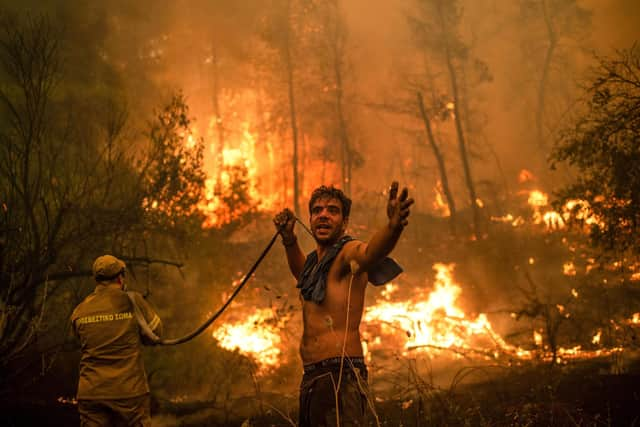Climate change: A global disaster must not be the legacy we leave to our children and grandchildren – Steve Cardownie
and live on Freeview channel 276
A councillor’s responsibilities are wide-ranging, particularly if, like I was, you are a group leader or hold a senior position within the administration.
However, since stepping down from the council, I have had much more time to devote to subjects which I had barely scratched the surface of before. That, coupled with my advancing years, has led me to reflect on what kind of planet will be left to the generations that will follow me.
Advertisement
Hide AdAdvertisement
Hide AdAt a time when an extreme weather warning has been issued for parts of England and with forecasts that the UK’s previous record high temperature (38.7 degrees Celsius in 2019) could be broken this weekend, it seemed appropriate to once again broach the subject of climate change and its effects on the planet, not just now but also its consequences in years to come if it is not adequately addressed now.
The US National Aeronautics and Space Administration (Nasa) reports: “The effects of human-caused global warming are happening now, are irreversible on the timescale of people alive today and will worsen in the decade to come.”
It warns that the global sea level has risen by about eight inches since reliable record keeping began in 1880. It is projected to rise another one to eight feet by 2100. This is the result of added water from melting land ice and the expansion of sea water. In the next several decades, storm surges and high tides could combine with sea level rise and land subsidence to further increase flooding in many regions.
The consequences of climate change, in addition to rising sea levels and flooding, include among others: intense droughts, severe fires, melting polar ice and catastrophic storms.


Advertisement
Hide AdAdvertisement
Hide AdThe United Nations reported last year that “Covid-19 paused but did not slow the relentless advance of climate change. Record levels of greenhouse gases in the atmosphere commit the planet to dangerous future warming... Rising global temperatures are fuelling extreme weather throughout the world, impacting economies and societies. The average global temperature for the past five years was among the highest on record and the scale of recent changes across the global climate system is unprecedented over many centuries to many thousands of years.”
I have no doubt that, like last year, we will witness out-of-control, long-lasting forest fires, extreme droughts and floods, increased incidences of hurricanes and record-high temperatures.
Global warming has certainly caught my attention and, while its effects on me might be minimal, that will certainly not be the case for my children and grandchildren if action is not taken now to redress the situation.
So, while we bask in the sunshine, sipping our ice-cold beers or eating ice-cream, spare a thought for those that will have to endure life-threatening weather conditions this summer and for the future generations that we have saddled with potential disaster.
Comment Guidelines
National World encourages reader discussion on our stories. User feedback, insights and back-and-forth exchanges add a rich layer of context to reporting. Please review our Community Guidelines before commenting.
